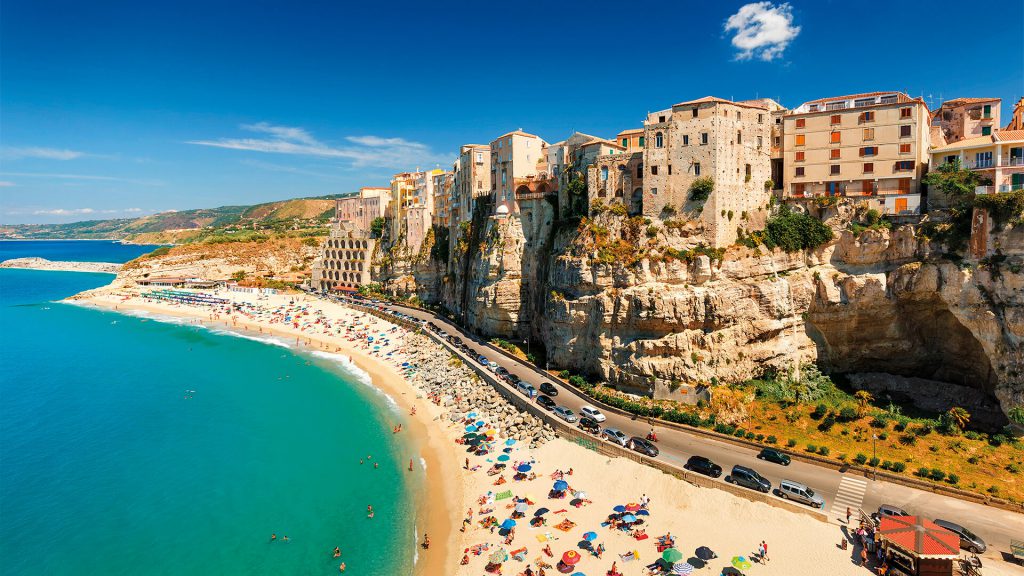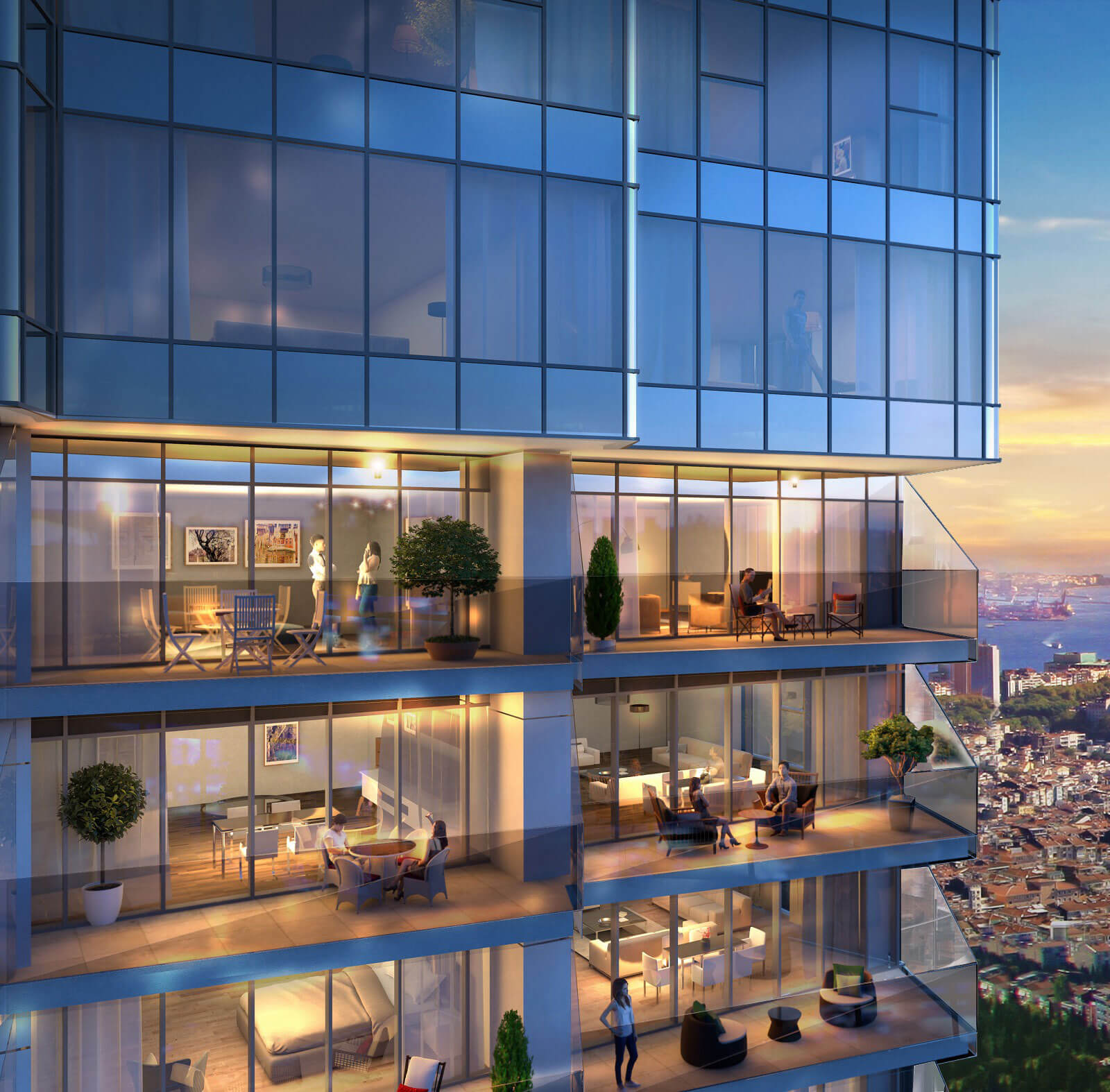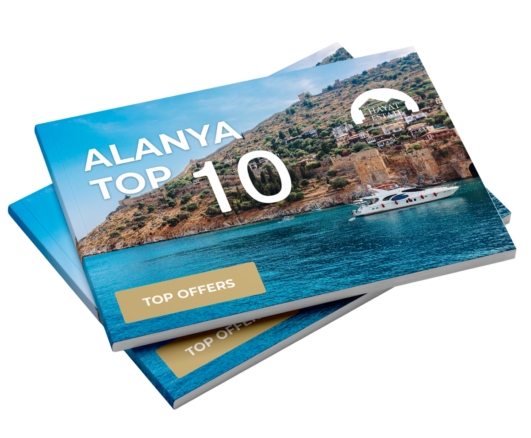Why Calabria?


The Tyrrhenian coast is synonymous with the lovely Costa Degli Dei, known as the "Coast of the Gods." It is 40 kilometers of picturesque bays, cliffs, and beautiful beaches, and because of its divine beauty, the coast deserves such a name. Of course, the Tyrrhenian coast is more than just the "Coast of the Gods," for there are many popular resorts, each of which leaves a unique impression after visiting. Here are some of the most attractive places for tourists:
Pizzo / Vibo Valentia
Pizzo is a popular seaside resort and fishing center in Vibo Valentia, famous for its white sandy beaches stretching from Marinella to Seggiola; in these parts is the famous Piedigrotta Cave (Italian Piedigrotta).
The city's history dates back to the 7th century BC, and its name has changed several times. The current term of the area - Vibo Valentia - was approved already in the twentieth century, more precisely in 1928. One of the most famous sights of this ancient city is the Norman-Swabian castle. It is on one of the highest points in the city and currently houses the Museum of Archeology, named after the famous historian and archaeologist Vito Capital. Another notable feature of the city is the network of narrow streets and intersections. There are several temples and monasteries in the town, in which the works of ancient sculptors and artists dating back to the 16th-17th centuries have been preserved. All this gives a unique charm to the urban environment.
The architectural dominants of the city center are the Aragonese castle, built in the 15th century, and the Church of St. George Martyr (St Matrix George Martyr). In the castle building, there is an exciting museum, the exhibits of which recreate a picture of the turbulent past of this town. The shops of the city delight customers with many Calabrian goods and, of course, local souvenirs!
The city of Pizzo is also famous for its natural "balcony" - a piece of land protruding towards the sea, from which a beautiful panorama of the coast opens up. Republic Square is the most visited place in the city. The area is surrounded by many historical restaurants where you can sit at a table and taste excellent ice cream prepared according to a local recipe. Also, the pearl of local cuisine - Tartufo (Italian: Il Tartufo) or enjoy watching life in a relaxed atmosphere.
Another exciting attraction is the church of Piedigrotta. This temple was "built" into a granite hill by Neapolitan sailors who survived the shipwreck as a token of gratitude to the Virgin Mary for miraculous salvation.
Are you interested in real estate near Pizzo? Pay attention to this complex Pizzo Beach Club.
Briatico
Briatico is between the tourist havens of Tropea and Pizzo Calabro on the famous coast of the Gods. This city attracts tourists with its captivating, picturesque beauty and rich cultural and historical heritage. The town abounds with magnificent beaches and is dotted with vineyards, orchards, and olive groves. The superb landscape is complemented by views of the Gulf of St. Euphemia (Italian: St. Euphemia) and some of the Aeolian Islands, such as Stromboli (Italian: Stromboli).
The charm of this city is also given by its exotic beauty and unique image, complemented by its rich history and abundance of myths and legends. The most famous tale is about the mysterious island of Santorin (Italian: Santa'Irene), where, according to legend, Mediterranean mermaids were imprisoned in one of the coastal cliffs facing the Tyrrhenian Sea. Because of a powerful earthquake in 1783, Briatico was almost destroyed, and now the ruins of the ancient city of Briatico Vecchio (Italian: Briatico Vecchio) lie here on a hill, the ruins of its 12 churches, three monasteries, and a medieval castle built by Ferdinand Bisbal. Archaeological finds show people founded a settlement during the Copper Age and even earlier. Other historical landmarks include two of the five towers built to defend against the Turks. One of these towers - the Saracen tower "La Rocchetta" - is in the old fishing harbor and has the shape of a pentagon. It was initially built by the Greeks and then rebuilt by the Romans. The Spanish royal government created the other tower, Santiren (also known as "Santa Iren").
Briatico also contains the remains of buildings from the time of the Roman Empire, including the Necropolis, medieval cave-monasteries known as the "Fairy Caves," and the valley of the Murray River, of interest to history buffs. Many tourists are attracted by the Roman fishing pond, near Cape Santa Irene (Santa Irene promontory), today a public bathing center. Another interesting monument that belongs to the category of national treasures is the Mulino Della Rocchetta sugar factory, built-in 1500.
Soon, we will build a river station in Briatico, which will connect the city with other unique objects of the region by water.
Are you interested in a property near Briatico? Pay attention to the complex La Torreta Beach Club.
Zambrone
Zambrone is a small municipality with a population of several thousand people. The history of the city goes back to the 16th century. This seemingly unremarkable city is rich in architectural monuments, eloquently testifying its rich history. The magnificent landscape and the tranquility of the surrounding nature give Zambrone a unique romantic atmosphere. If this is your first visit to Zambrone, then it can safely be called love at first sight!
City's appearance is effectively complemented by magnificent mountain ranges rising above the azure sea and picturesque white beaches. The local arena is the center of the city's cultural life, as it hosts various theatrical performances, ballet performances, concerts of classical and modern music. The annual schedule of the theater is tight. Every year, guests of the city witness the annual August tambourine festival. It is a proper celebration of ethnic music! Zambrone is an excellent place for connoisseurs of national Italian cuisine, as local restaurants and pizzerias offer a wide selection of dishes, particularly seafood dishes. If you desire to go out of town, go to the Aeolian Islands, located nearby. It is an excellent platform for the entertainment of famous and wealthy people!
In Zambrone, you can spend an unforgettable vacation, relax, unwind and return from there with a feeling of complete satisfaction!
Are you interested in property in/near Zambrone? We bring to your attention the following objects: Zambrone Beach Resort, Il Giardino Degli Dei, Seven Villas.
Tropea
Tropea, popularly referred to as the "Pearl of the Tyrrhenian Sea," is on a sandstone coastal cliff on the shores of the Gulf of St. Euphemia and is a popular place for swimming. The city is linked to the continent by a tiny strip of land, and it is surrounded by beaches that are cited as among the finest in the Mediterranean.
Tropea is rightly considered a paradise for lovers of relaxation. There is a vast choice of entertainment, countless attractions, outdoor sports and water sports, etc. You can visit the Fudo Montalto Golf Club, located 30 minutes from Tropea, admire the wrecks of about fifty ships that sank in the 4th century, and even experience the healing effects of the hot springs and mud baths of the nearby island of Vulcano. There is always something to do in Tropea - relaxation, and entertainment!
The history of Tropea dates back several centuries, as does the history of some other settlements in southern Italy. This small town has architectural monuments - palaces built 2-3 centuries ago. There is a square in the city named after Ercole's mythological character, who is supposed to have founded the first settlement here. In Tropea, there are traces of the influence of the Arab, Norman, and Aragonese cultures since the city was occupied several times by representatives of these civilizations. One of the most interesting sights of Tropea is the Church of Santa Maria dell Isola. It is on a high cliff, connected to the mainland by a narrow strip of land, and is visible from a distance of 40 meters from the island's coast. The Norman Cathedral is another beautiful temple of Tropea, which houses the icon of the Madonna di Romagna (Madonna di Romania).
Visit Tropea and experience the magical atmosphere of Mediterranean life. I can't imagine a more comfortable place to live than Tropea!
Ricadi
Ricadi is a small town in the Province of Vibo Valentia, presumably founded in the 10th century. The city is a fascinating archaeological site. Found many objects dating back to the prehistoric period were here, many of which have replenished the collection of the Reggio National Museum.
Ricadi is one of the most visited tourist sites on the Tyrrhenian coast. There are three bays of Grotticelle, the most popular places for mass bathing in the municipality.
Capo Vaticano / Aeolian Islands
The cape of Capo Vaticano (formerly Taurianum Promontorium) is mentioned in the works of ancient Greek mythology and literature as a meeting place for gods and nymphs who swam in these places. Capo Vaticano is famous for its excellent climate. Here, from the side of the Ligurian Sea, the so-called mistral winds blow, giving the air an extraordinary freshness.
Many ancient castles, whose towers were used as lighthouses in the past, adorn the seaside landscape. Of particular note is the palace of Monteleone in Vibo Valentia, which played the role of the main lighthouse. In 1870, on a rock 110 meters above sea level, the lighthouse of Capo Vaticano was built today; it is one of the most interesting local attractions. A short drive away is the cozy mountain village of Pineta di Monte Poro, where you can spend time among the picturesque pine groves. Capo Vaticano is the center of the untouched beauty of rocky cliffs, wild beaches, and coves, where you can also admire representatives of the unique local flora and fauna. The life of marine life greatly interests divers. What else does a person need when the amazing Aeolian Islands are nearby?








